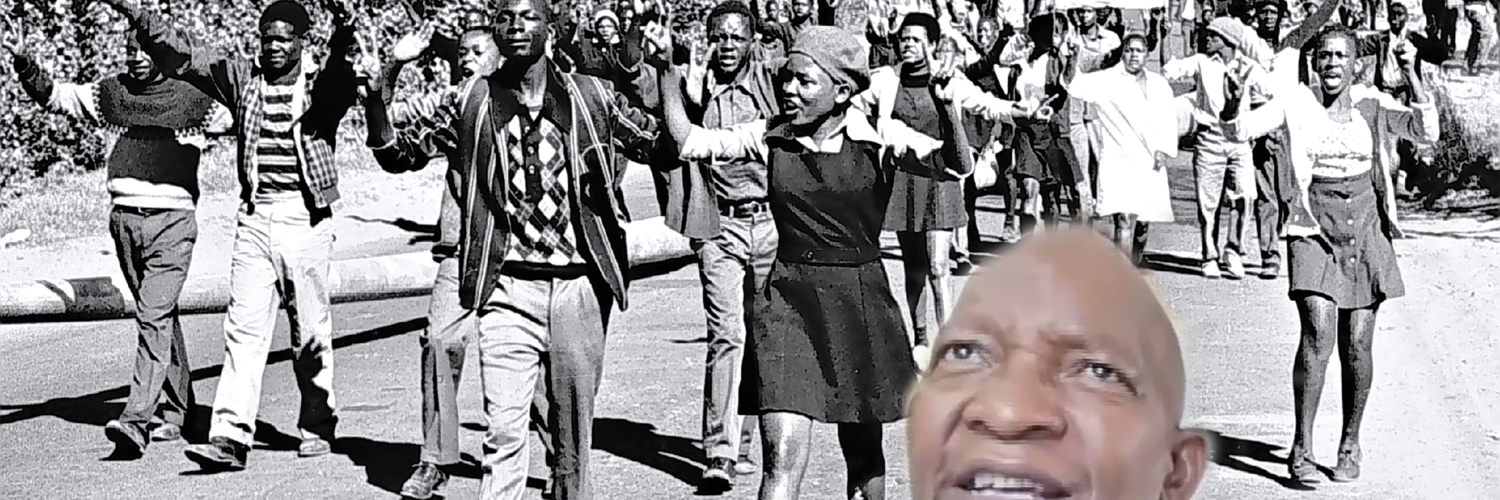TESTIMONY: MK veteran is embodiment of what centuries’ struggle for true liberation of our people should be about…
There is this guy, one Omry Makgoale, who is now establishing himself as a solid political commentator especially, but not exclusively on matters concerning the African National Congress.
The media always refers to him as an MK (Umkhonto Wesizwe) veteran. What an understatement, if ever there was one. Makgoale is much, much more than that.
If Siphiwe Nyanda has rightly earned his place in the pantheon of MK leaders because of his legendary heroics during the armed struggle, Makgoale too belongs to an exclusive grouping of cadres who exemplified moral rectitude.
Makgoale is one of the thousands of young men and women who went into exile to join MK in the wake of the June 16 1976 students uprising. With the 47th anniversary of this epoch-making uprising, which changed the political landscape of this country forever. I thought it appropriate to pay tribute to one of those unsung heroes of MK, who was a product of the students’ uprising.
A cursory peep into Makgoale’s trials and tribulations as a soldier in exile will show that, to simply call him an MK veteran, does not do full credit to him. His principled steadfastness in the face of daunting odds – on occasion facing the possibility of being executed by fellow comrades – bears testimony to someone of special integrity.
In paying tribute to Makgoale I believe am also driven by the sense of guilt for failing to meet with one of his fellow MK combatants, Mbulelo Musi, who died a few months ago. I spoke to Musi several times over the phone following his return from exile, but was able to meet him only once.
Fate, for whatever reason, decided we should never have enough time to chew the cud over several matters. My desire to have an extended face-to-face with him was whetted even further after reading the book: Inside Quatro: Uncovering the exile history of the ANC and Swapo. The book talks about the many hidden and unknown challenges faced by cadres such as Makgoale and Musi.
These two are among the many heroes and heroines whose stories writers and historians must bring to the public attention. I believe they must be recognised wherever possible when they are still alive. Too many of our heroes and heroines have died unknown and unrecognised. I am thinking of the likes of the June 16, 1976 giant Tebello Motapanyane. For the sake of intellectual integrity, I must admit that what I have learnt about Makgoale is sourced largely from Inside Quatro. Makgoale, a trained engineer, later confirmed the veracity of the narrative.
Imbued with the revolutionary zeal and spirit of those young Soweto students, Makgoale and Musi (he comes from the nearby West Rand township of Kagiso) must have joined MK as starry-eyed youngsters, believing they had come to a movement that would mould and shape them into true revolutionaries. In certain instances, things did not turn out to their expectations and matters came to a head around 1980.
This was when they found themselves at serious odds with the all-powerful members of the party’s security department, also known Imbokodo or the stone that crushes.
Being well-trained soldiers, members of the June 16 Detachment, felt well-equipped to take the fight to their principal enemy, the apartheid regime. Instead of being sent home to engage with the White power structure, they found themselves vegetating in military camps, be it in Angola or Tanzania. Instead, they often found themselves engaged in helping the Angolan army ( Fapla) in its struggle against Jonas Savimbi’s Unita forces or helping Joshua Nkomo’s Zipra forces in the then Rhodesia, now Zimbabwe. This frustrated the June 16 Detachment no end because they often suffered casualties.
Failure to engage their real enemy, abuse from Imbokodo, and perceived corruption by the party leadership saw some of these cadres calling for a conference to address their grievances. Makgoale was among those agitating for an overhaul of the leadership structures.
Cadres formed a Committee of Ten to approach the party leadership to ventilate their grievances, and both Makgoale and Musi served on this structure. Their overtures were rebuffed. Makgoale found himself a target of Imbokodo. He was imprisoned. Tortured. Saw colleagues executed by fellow comrades. Between 1984 to 1989 he was held in Imbokodo-controlled Angolan military dungeons.
Nothing could be proven against him that he was an enemy agent. Although a strong critic of corruption in the ANC and the party’s failure to address the many socio-economic problems of Black people. His criticisms are always balanced and fair. No bitterness or rancour for someone who endured so much pain and torture at the hands of so-called comrades. So, dear media colleagues, Omry Makgoale is much more than an MK veteran. He is, in my view, the embodiment of what the centuries’ struggle for true liberation of our people should be about.































